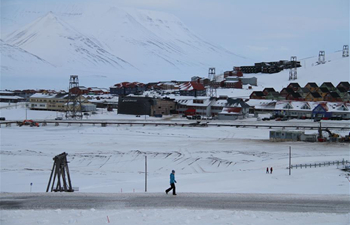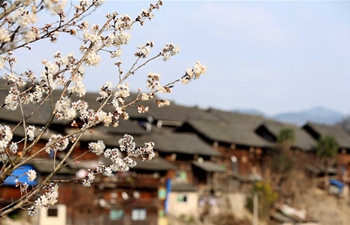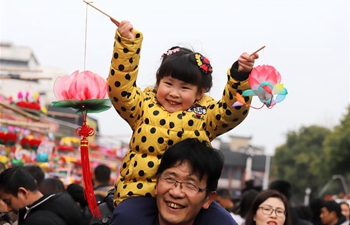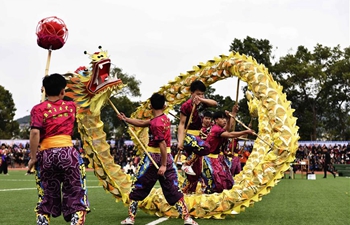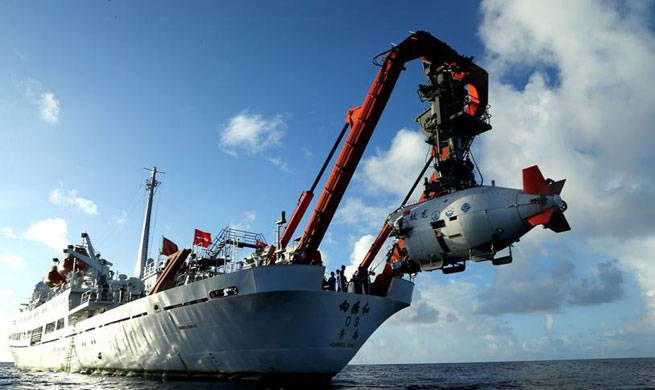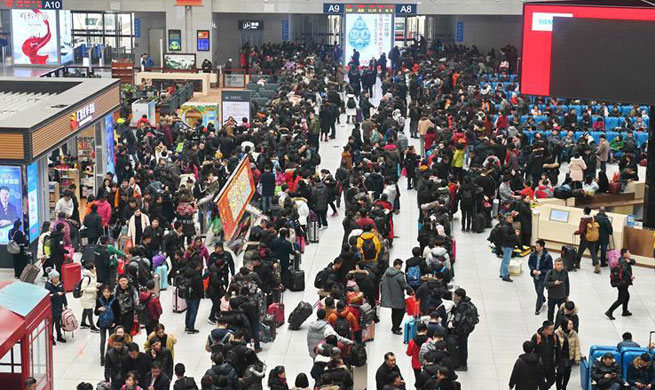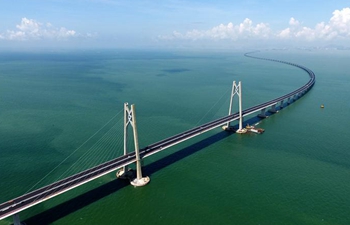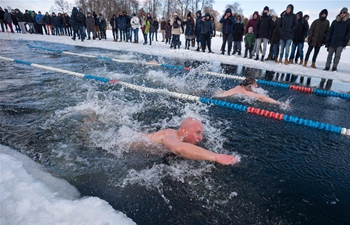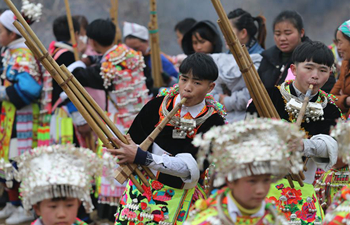DAMASCUS, Feb. 26 (Xinhua) -- Two days after the UN Security Council adopted a resolution for a month-long humanitarian ceasefire in Syria, the Russians have called for a daily "humanitarian pause" to take place in the capital Damascus' Eastern Ghouta region amid reluctance of the rebels.
On Monday, Russian President Vladimir Putin ordered daily "humanitarian pause" in Syria's Eastern Ghouta to allow evacuation of civilians from the zone held by militants, Russian Defense Minister Sergei Shoigu said.
He said in a statement that the humanitarian pause will be in force from 9 a.m. (0700 GMT) to 2 p.m. (1200 GMT) every day starting Tuesday.
The location of the humanitarian corridor is to be announced later, the statement said, but local sources said the corridor will be the Wafidin crossing between areas under the rebels' control in Eastern Ghouta and government-controlled areas.
The announcement comes just a couple of days after the United Nations Security Council adopted on Resolution 2401, which requires all parties in Syria to immediately cease clashes and provide a sustained humanitarian break for at least 30 days.
The UN resolution has excluded terror-designated groups such as the Islamic State (IS) and the al-Qaida-linked Nusra Front, as the battles against those groups have continued.
The Russian announcement on Monday didn't seem to fully resonate with the Islam Army, the major rebel group in Eastern Ghouta, as the head of its political body, Mohammed Alloush, said that the Islam Army doesn't reject the Russian proposal of ceasefire but doesn't accept the evacuation of civilians through the humanitarian corridors, saying it wasn't included in the UN Security Council resolution.
He, however, said that the wounded and those in urgent conditions can evacuate, but the civilians, in general, will not leave Eastern Ghouta, according to Russia's Sputnik news agency.
Meanwhile, Kremlin spokesman Dmitry Peskov said Monday that "the situation in Syria... causes extreme concern. The terrorists who are in Eastern Ghouta, do not lay down their arms, they keep the local population hostage, and this is the reason for the very tense situation."
This comes as the battles in Eastern Ghouta haven't stopped as the army kept on pounding the areas under the control of the Nusra Front and its allies in that region, which explains the daily specified humanitarian pause.
The rebels' mortar shells that target Damascus haven't stopped as well, with 48 mortar rounds slamming several parts of Damascus on Monday.
Meanwhile, the oppositional Syrian Observatory for Human Rights said that the Syrian forces' bombardment continued to target areas in Eastern Ghouta after the adoption of the UN resolution, saying that a total of 561 people have been killed over the past nine days, when the situation got tense between the rebels and the government forces in Eastern Ghouta.
Inji Sedki, a spokesperson of the International Committee of the Red Cross (ICRC), told Xinhua on Monday that no aid convoy has moved toward Eastern Ghouta after the UN resolution.
She added that the situation is not clear yet and it's hard to know when the convoys will start entering Eastern Ghouta.
Sedki noted that the ICRC hasn't entered Eastern Ghouta since November, adding that the medial situation was very bad then.
"Of course the medical needs and the entry of medicine are the most urgent thing in Eastern Ghouta," Sedki said, expecting the situation to be much worse than it was last November.
She added that the fighting should stop and guarantees should be made in order for the ICRC to carry out its humanitarian work on ground.





